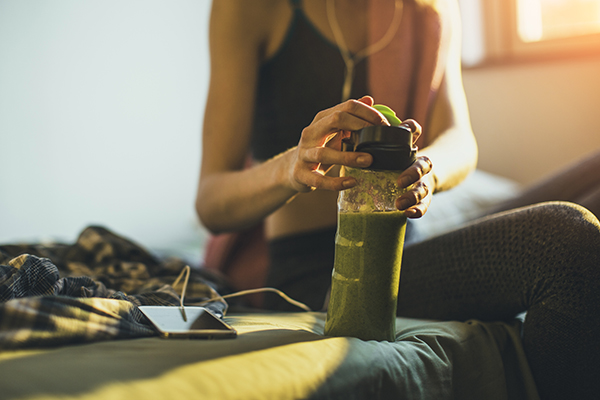5 Ways to Recover After a Run

Believe it or not, your workout isn’t done just because you’ve kicked off your running shoes.
Sure, the running portion may be over, but now your body begins a new phase: post-run recovery.
When done right, the post-run recovery phase is when the real magic happens.
Your body adapts to the stresses of the run and becomes stronger each time, which ultimately helps you run faster, longer, and more efficiently.
To see this magic firsthand, be sure to follow these five post-run recovery tips.

1. Cool Down and Stretch Right After Your Run
Running — especially running intensely and/or for long periods of time — will break down the muscles in your legs, which can lead to stiffness and soreness, says Nicholas Hilton, a running coach in Flagstaff, Ariz.
To keep post-run soreness and tightness at bay, cap off your run with some gentle stretches while your muscles are still warm and limber.
Taking time to cool down and stretch post-run is also a great way to bring your breathing and heart rate back down to normal levels, says Elizabeth Corkum, an RRCA-certified running coach in New York City.
Before you end your run, take five minutes to walk or jog at an easy pace.
Then, head right into a stretch session, and focus on stretching out the hamstrings, quads, groin, hip flexors, and glutes.
Hold each stretch for 20 to 30 seconds, and remember to breathe, Corkum recommends.

2. Refuel As Quickly As Possible
In addition to breaking down muscle tissue in your legs, running also depletes glycogen (a form of carbs your body uses for fuel), fluids, and electrolytes, and replenishment of those things is critical, Hilton says.
Even if you’re not ready to sit down to a meal immediately after your run, you should still aim to get some fluid and nutrients into your system within 30 minutes of finishing your workout.
Eating within this window gives your body the nutrients it needs to rebuild and restock the fuel you used during your run, which jumpstarts the recovery process, according to Corkum.
Get some water (we’ll go into the specifics shortly), and grab a snack that has 100 to 300 calories, and a 3:1 or 4:1 ratio of carbs and protein.
“Chocolate milk or a protein and fruit smoothie can be great snack options or even an apple with peanut butter,” Corkum says.
A post-workout supplement can help reduce muscle soreness and help you regain muscle function faster.
3. Stay Hydrated
As we’ve already hinted, staying hydrated is key for aiding recovery.
“You sweat out lots of fluids during intense exercise and getting that fluid back into your body after a hard effort is important,” Hilton says.
In addition to cooling your body after a run, water helps your body absorb micro- and macro-nutrients to repair damaged muscle tissue.
Exactly how much water you should drink every day will vary according to your weight, activity level, and environment (ex. you may need more water if the weather is hotter than usual).
However, BODi recommends using your body weight to find an estimate. Simply divide your body weight (in pounds) by two to get your target water intake (in ounces).
As an example, if you weigh 150 pounds, aim to drink 75 ounces of water per day. Keep in mind that you may need more than that on sweaty days.
Beachbody Performance Hydrate provides an ideal balance of electrolytes and sugars and can help maximize absorption and optimize hydration.

4. Keep Moving
You may be tempted to camp out on the couch during the hours (or even days) following a long run, but this will likely cause more muscle stiffness and soreness.
The result: A slow recovery.
Instead, go out for an easy recovery run or walk, and/or hop on your mat for a gentle yoga routine.
“Getting out for some easy movement gets the blood circulating, which helps flush out waste leftover from the hard effort, and accelerates muscle recovery,” Hilton explains. “The key is to keep the effort very easy, and get your body moving.”
5. Get to Bed
No conversation about recovery would be complete without mentioning sleep. Not only is sleep critical for overall health, but it also keeps your post-run recovery humming along.
According to a 2014 review in Sports Medicine, protein synthesis — the process of making proteins — kicks into high gear while you sleep, which helps repair and rebuild the muscles you broke down during your run.
Sleep also gives your muscles the opportunity to fill up on glycogen, one of your body’s main sources of energy during exercise, according to the same review.
If your muscles can’t restock their glycogen stores, your next run could be a struggle.
To optimize your post-run recovery, aim to get 7 to 9 hours of sleep per night and consider taking a supplement at bedtime that contains casein, a slow-release protein that helps make the most of this repair and rebuild window.
